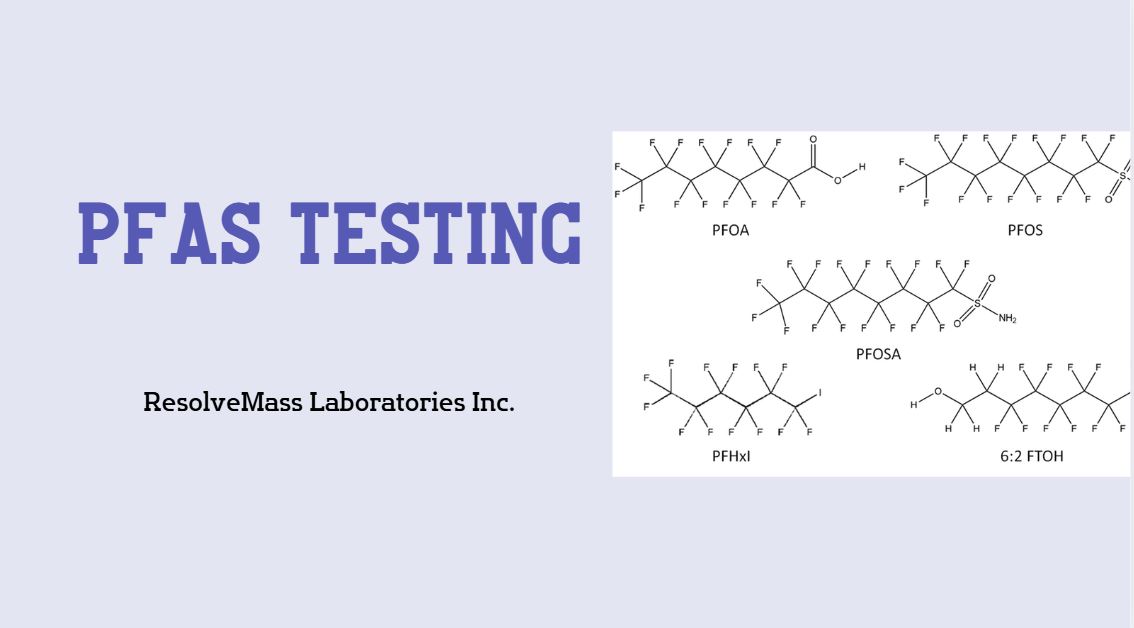Introduction to Peptide Characterization in Drug Development
Peptide Characterization in Drug Development is a key step that ensures the safety, quality, and effectiveness of peptide-based medicines. At ResolveMass Laboratories, we help pharmaceutical companies with thorough peptide testing at each phase of development. Performing this process at the right time not only supports regulatory approval but can also avoid delays and costly rework.
This article explains when and why peptide characterization is needed during drug development. It highlights regulatory needs, scientific standards, and how proper timing supports successful drug submissions.
What is Peptide Characterization in Drug Development?
Peptide characterization involves testing a peptide drug to confirm its identity, purity, structure, and stability. This process includes:
- Confirming the amino acid sequence
- Measuring molecular weight and structure
- Checking for impurities and breakdown products
- Studying peptide stability and tendency to group or clump
At ResolveMass, we use modern tools like mass spectrometry, HPLC, FTIR, NMR, and peptide mapping. These tools help us provide reliable and clear results that meet both FDA and Health Canada standards. Good peptide characterization means your data is consistent, trustworthy, and ready for regulators.
ResolveMass Laboratories specializes in peptide characterization techniques such as mass spectrometry, HPLC, FTIR, NMR, and peptide mapping, all under FDA and Health Canada compliant environments.
Why Timing is Important in Peptide Characterization
🔍 1. Discovery Stage
In this early phase, researchers look for peptide candidates that could work as future medicines. Characterizing peptides early helps confirm whether the drug is made correctly and performs as expected.
- Confirms the correct amino acid sequence
- Detects early-stage impurities
- Assesses chemical behavior and solubility
- Helps choose the most promising lead candidates
ResolveMass offers early-phase services to help companies avoid wasting time and resources on unstable or impure peptides.
At ResolveMass, we provide early-phase peptide characterization in Canada to help eliminate unviable candidates and focus resources on optimal compounds.
🧪 2. Pre-IND (Investigational New Drug) Stage
Before a company can start clinical trials, it must submit a strong IND application. This includes detailed data about the peptide drug, which comes from deep characterization studies.
- Confirms purity levels (usually above 95%)
- Identifies potential degradation or impurity risks
- Proves batch-to-batch consistency
- Provides validated testing methods for regulatory filing
At this stage, Peptide Characterization in Drug Development becomes central to the IND process. ResolveMass supports drug makers with complete documentation and analytical packages that follow FDA and ICH guidelines.
Learn more about our specialized peptide characterization for IND submissions, ensuring you are fully prepared for regulatory review.
🧬 3. GLP Toxicology Studies
Once a peptide drug moves to animal testing (under Good Laboratory Practice, or GLP), accurate characterization ensures the drug used in tests is exactly what was planned.
- Checks dosage accuracy and chemical traceability
- Confirms the compound’s behavior in different environments
- Validates storage stability and shelf life
- Helps link toxicity results to the actual drug substance
ResolveMass provides toxicology-ready reports that align with global standards and support future clinical trial phases.
📄 4. NDA (New Drug Application) and Commercialization
Before a drug can be sold, companies must file an NDA. This includes full data showing the drug is safe, stable, and consistently made.
- Runs in-depth stability testing (short- and long-term)
- Proves consistent quality across all production lots
- Analyzes impurities and how they change over time
- Confirms reliable manufacturing and storage conditions
Peptide Characterization in Drug Development at this stage helps ensure the final product on pharmacy shelves is just as safe and effective as the one tested in trials.
At this juncture, ResolveMass supports your team with regulatory-ready documentation and robust peptide characterization service in Canada.
🔁 5. Post-Marketing and Lifecycle Management
Even after approval, peptide drugs must be monitored. If a company changes the manufacturing process or delivery method, peptide re-characterization is needed.
- Supports updates in formulation or production scale
- Checks new packaging or delivery devices
- Investigates any changes in performance or stability
- Ensures ongoing compliance with changing regulations
ResolveMass continues to assist partners with ongoing testing and regulatory updates, keeping drugs compliant after they’re on the market.
📊 Summary Table: Peptide Characterization Timeline
| Stage | Purpose of Characterization | ResolveMass Service |
|---|---|---|
| Discovery | Identity check, impurity detection | Early Phase Analysis |
| Pre-IND | Regulatory support, method validation | IND Prep Services |
| GLP Studies | Dose consistency, toxicity analysis | GLP Compliant Testing |
| NDA Filing | Full quality proof, stability testing | Commercialization Support |
| Post-Approval | Change management, compliance checks | Lifecycle Re-evaluation Services |
🏢 Why Choose ResolveMass for Peptide Characterization?
At ResolveMass Laboratories, we combine scientific accuracy with regulatory understanding. Our labs follow GMP and GLP standards, offering reliable data from discovery to post-approval.
Our methods support Peptide Characterization in Drug Development through every phase. With cutting-edge tools and experienced scientists, we make sure your results are clear, complete, and ready for submission.
Through our peptide characterization techniques, we ensure precise and reproducible data, supporting both product safety and efficacy. Our commitment to data integrity, transparency, and client education sets us apart as a trustworthy analytical partner.
✅ Conclusion
Peptide Characterization in Drug Development is not just a single step—it’s a vital part of the full drug journey. Whether you’re identifying a lead compound or preparing for FDA approval, knowing when and how to characterize your peptide is key.
ResolveMass Laboratories provides expert support across all phases, helping you move forward with confidence and compliance. Reach out today to learn how we can assist with your peptide drug program. Whether you’re submitting an IND, preparing an NDA, or monitoring a marketed product, trust our Canada-based peptide characterization services to guide your success.
👉 Contact us today to discuss your project.
👉 Book a consultation with our scientific team
👉 Learn how we prepare you for FDA peptide requirements
👉 Need immediate assistance? Reach out here
Frequently Asked Questions (FAQs)
Peptides are characterized using techniques like Mass Spectrometry (MS), High-Performance Liquid Chromatography (HPLC), and Nuclear Magnetic Resonance (NMR). These help confirm the peptide’s identity, purity, and structure. Other methods like FTIR or amino acid analysis may also be used when needed.
Characterization ensures the peptide is exactly what you expect—its identity, purity, stability, and structure—so that it performs safely and effectively in pharmaceutical applications .
Structural analysis is done using Nuclear Magnetic Resonance (NMR) to see their 3D shape, and techniques like Circular Dichroism (CD) to identify folding patterns such as helices and sheets
The core characterization tests for peptides are similar for both IND (Investigational New Drug) and NDA (New Drug Application), but the level of detail differs. For IND, the focus is on early safety and proof of concept, so basic identity, purity, and stability data are required. For NDA, much more extensive data is needed, including full validation, batch consistency, degradation studies, and long-term stability.
Peptide characterization should begin as early as the preclinical stage. Early testing helps confirm the identity, purity, and stability of the peptide before it moves into animal studies or clinical trials. Starting early also helps avoid delays later in drug development.
If your peptide formulation changes, new characterization studies must be done to confirm the identity, purity, and stability of the updated product. Regulatory agencies require proof that the new formulation is still safe and effective. It’s important to document all changes and revalidate the data.
We use a combination of mass spectrometry, HPLC, FTIR, NMR, and peptide mapping. Our analytical techniques meet FDA, EMA, and Health Canada guidelines.


